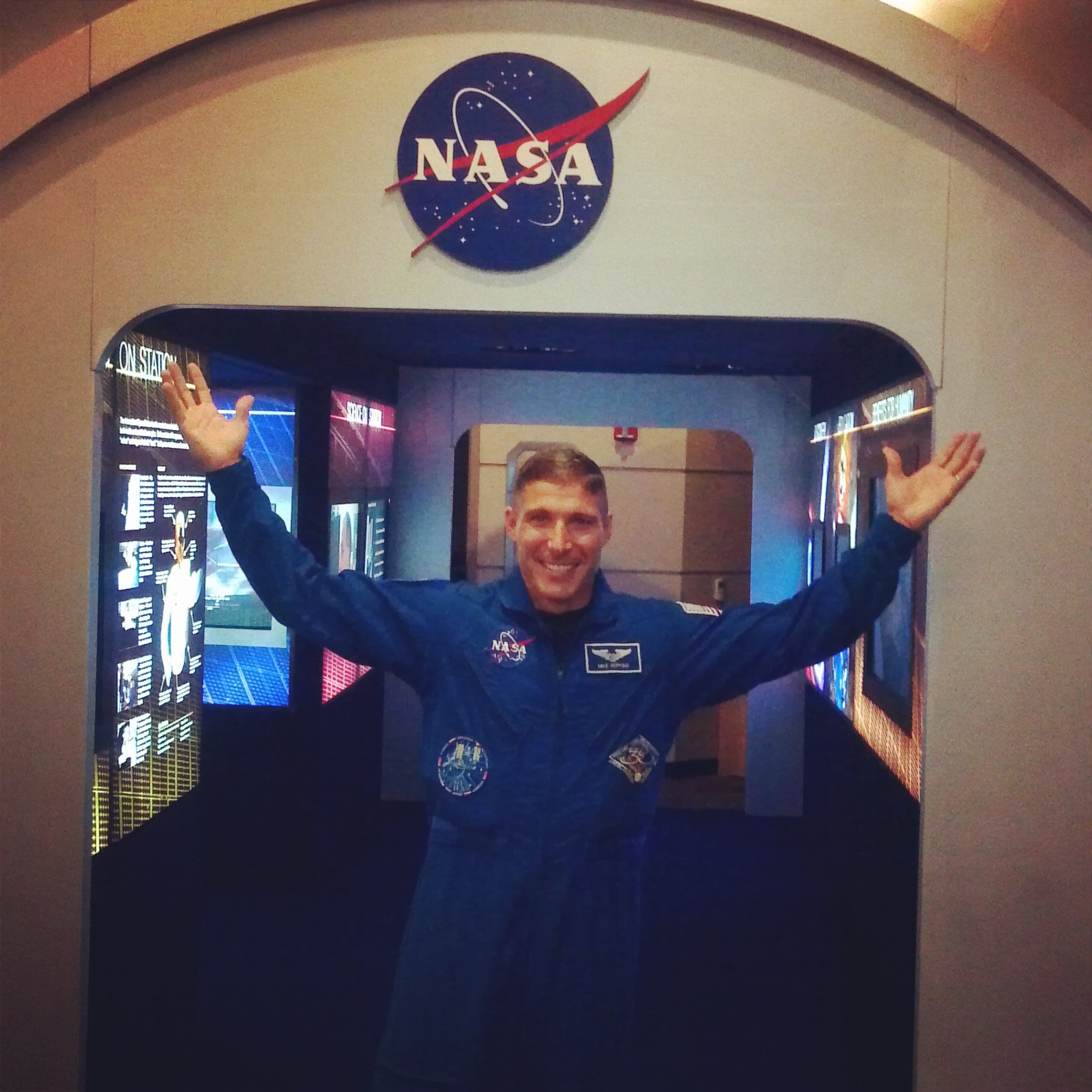
An Interview With an Astronaut

With the launch of our new exhibit, Destination Station, we've been lucky to have astronauts available to chat with us here at the Fleet! Mike Hopkins was selected in July 2009 as one of 14 members of the 20th NASA astronaut class. On September 25, 2013, Hopkins launched from the Baikonur Cosmodrome in Kazakhstan to the International Space Station. During his stay aboard the space station, Hopkins conducted a pair of U.S. spacewalks to change out a degraded pump module for a total of 12 hours and 58 minutes. Hopkins returned to Earth on March 10, 2014, after 166 days in space.
Q: What inspired you to become an astronaut?
I first was interested in the astronaut program back in high school. This was during the early days of the shuttle program. When there was a launch, they would show it for the whole school. Seeing those early shuttle astronauts up in space, launching satellites, going on space walks, performing science … that all really interested me. I thought that was something I'd like to do.
Q: How did you make this childhood interest come to reality as an adult?
The idea of being an astronaut fit very well with my other interests. I enjoyed math and science in school. I knew I wanted to get into engineering. And then I was also interested in flying and the military. So I was able to pursue those interests, all the while giving me the experience I needed to become an astronaut.
Q: What's the most fun or interesting part about being on the International Space Station?
There are so many thing that are enjoyable about being in space. Floating never got old for the whole 166 days I was up there. On the other hand, I went on two space walks, and those were two events that I will absolutely never forget in my entire life.
Q: Do you think you'll get back up there ever?
I would like to go, I'd certainly be interested. But we have a core of 40 astronauts, and we're only launching maybe four astronauts a years. So the opportunities to fly again are limited.
Q: What are some of the strangest things about coming back to Earth after being up on the International Space Station for so long?
The transition from microgravity back to Earth. The first two to three days are the strangest time. For example, your mind forgets how heavy things are when you get back to Earth. So a small book that weighs maybe a pound all of a sudden feels like it weighs 50 lbs. That's one of the strangest things.
Q: Were you ever scared?
I was never scared. I was nervous about things. One of the main things I was nervous about was messing up. The ISS is a very expensive national laboratory, and you'd hate to be the person to break it.
Q: Would things ever break?
There are always items failing and things to replace. Space walks are a big part of the space station upkeep. That was one of the better things about doing the space walks—being able to get the space station up and running again after a problem. It's a major sense of accomplishment.
We had a pump module that failed, a part of the external cooling system. We had to go out and replace it. That pump module weighs 800 pounds, about the size of a refrigerator, so it's not a small piece of equipment. It's weightless, but it still has mass. My crew mate, Rick Mastracchio, does a very good job of describing microgravity. He says, “It makes the impossible possible.” One person can handle that 800-pound, refrigerator-sized object, which you wouldn't be able to do on Earth. But the microgravity environment also makes simple things more difficult. For example, your tools. You can't just set them down because they'll float away. You always have to make sure that they're tethered to you or the station. You're double and triple checking everything to make sure it's tethered. The last thing you want is for a one-of-a-kind tool to go floating off. That would be a bad day. It's very stressful keeping track of that stuff. It's important to be focused when you're out there on a spacewalk.
Q: What do you think of the Destination Station exhibit, on display at the Fleet through Labor Day?
I think it's great! I get excited seeing the exhibit and videos of my colleagues working up in space. I think it's also exciting to see that experience being shared with people all over the country. That's what Destination Station can do, give people a taste of what it's like to live and work in microgravity.
—By Nathan Young
